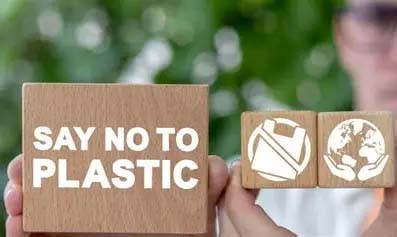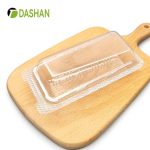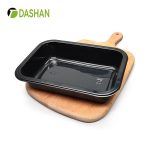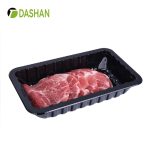Introduction
The growing awareness of environmental sustainability has prompted governments and businesses worldwide to rethink their approach to disposable tableware. In the Nordic region, including Iceland, there is increasing emphasis on reducing plastic waste and promoting biodegradable and compostable alternatives. This article explores Iceland’s regulatory landscape, market trends, and opportunities for eco-friendly tableware, particularly compostable products. It also examines challenges, consumer behavior, and implications for manufacturers and retailers.
1. Regulatory Landscape in Iceland and Nordic Countries

1.1 Plastic Ban in Iceland
Iceland has implemented strict regulations to reduce single-use plastic products. The amendment to the Waste and Pollution Control Act in 2021 bans the sale of single-use plastic items, including cutlery, plates, straws, and cotton swabs. This policy aligns with the European Union’s directive on single-use plastics and reflects Iceland’s commitment to minimizing environmental pollution.
1.2 Standards for Compostable and Biodegradable Tableware
While Iceland does not prohibit compostable tableware, it emphasizes that all packaging and disposable products must be recyclable, reusable, or compostable by 2025. Industrial compostability standards are crucial because many biodegradable items require specialized facilities to fully decompose. Manufacturers need to ensure compliance with these standards to market products legally and responsibly in Iceland.
1.3 Waste Management Challenges
Iceland’s composting infrastructure is not yet fully developed in all regions, which poses challenges for the proper disposal of compostable tableware. If compostable items are mixed with regular waste, their environmental benefits are diminished. Therefore, coordinated efforts between authorities, manufacturers, and consumers are essential to maximize sustainability outcomes.
2. Market Trends and Consumer Awareness
2.1 Rising Demand for Sustainable Alternatives
Consumers in Iceland and the broader Nordic region increasingly prefer products that are environmentally responsible. This trend has boosted demand for compostable and biodegradable tableware made from materials such as sugarcane bagasse, corn starch, and bamboo fiber. Restaurants, cafes, and event organizers are adopting these products to meet both regulatory requirements and consumer expectations.
2.2 Industrial and Retail Adoption
Major retailers and foodservice companies are beginning to integrate eco-friendly tableware into their supply chains. Companies offering compostable solutions, including DASHAN’s sugarcane bagasse and corn starch products, are gaining traction due to their combination of durability, safety, and environmental benefits. These products are particularly appealing for takeaway food services, catering, and hospitality businesses seeking to reduce their ecological footprint.
2.3 Public Awareness Campaigns
Consumer education plays a vital role in ensuring proper disposal of compostable tableware. Nordic countries often run awareness campaigns explaining how to sort waste and encouraging responsible use of biodegradable products. In Iceland, informing the public about industrial composting requirements helps prevent contamination of recycling streams and promotes the environmental effectiveness of compostable items.
3. Opportunities for Manufacturers and Retailers
3.1 Product Innovation and Diversification
The growing market for sustainable tableware presents opportunities for innovation. Products made from renewable resources, like corn starch and sugarcane bagasse, can replace traditional plastic items while offering functional benefits such as heat resistance and sturdiness. Companies can differentiate themselves through customizable designs, eco-certifications, and educational labeling.
3.2 Export Potential
Iceland’s strong environmental regulations and high consumer awareness create a niche market for imported sustainable tableware. Exporters from other regions can supply compostable products, provided they meet Icelandic standards and certifications. With the Nordic region’s collective commitment to sustainability, the potential for regional market expansion is significant.
3.3 Collaboration with Foodservice Industry
Partnering with cafes, restaurants, and catering services is a strategic approach to expanding market penetration. Eco-friendly tableware not only helps businesses comply with regulations but also enhances brand image and aligns with the values of environmentally conscious consumers.
4. Challenges and Considerations
4.1 Infrastructure Limitations
One of the main challenges is the availability of industrial composting facilities. Without widespread composting infrastructure, the decomposition of compostable tableware may not occur effectively, limiting environmental benefits.
4.2 Cost Factors
Compostable tableware is generally more expensive than conventional plastic alternatives. Manufacturers and suppliers need to balance sustainability with affordability to ensure broad adoption, particularly among small businesses.
4.3 Consumer Behavior
Even with eco-friendly products, consumer behavior is crucial. Misunderstanding of disposal methods can result in compostable items ending up in landfills or recycling streams, reducing their positive environmental impact. Proper labeling, guidance, and campaigns are essential to maximize the sustainability of these products.
5. Case Study: DASHAN Sugarcane Bagasse Products
DASHAN has successfully introduced sugarcane bagasse-based tableware to Nordic markets. Their products, including plates, bowls, and clamshell boxes, provide a fully biodegradable and compostable alternative to plastic and Styrofoam. Key features include:
-
Heat and cold resistance suitable for various food types
-
Sturdiness for safe handling and transport
-
Food-safe and non-toxic materials
-
Compliance with international eco-certifications
By offering functional and sustainable solutions, DASHAN exemplifies how manufacturers can align with environmental policies while meeting market demand.
6. Future Outlook
The Nordic region, led by Iceland, is likely to see continued growth in sustainable tableware adoption. Key drivers include:
-
Stricter environmental regulations and bans on single-use plastics
-
Increasing consumer preference for eco-friendly alternatives
-
Expansion of composting and recycling infrastructure
-
Innovation in materials science and biodegradable technologies
Manufacturers and retailers who proactively embrace these trends are well-positioned to benefit from the expanding market.
Conclusion
Iceland and the Nordic countries are at the forefront of sustainable tableware adoption, driven by regulatory pressure, consumer awareness, and environmental responsibility. While challenges remain in infrastructure and cost, the growing demand for compostable and biodegradable products creates significant opportunities for manufacturers, importers, and foodservice providers. Companies like DASHAN demonstrate that sustainable tableware can meet functional needs while promoting environmental protection, offering a model for global adoption.
FAQ
-
What types of disposable tableware are allowed in Iceland?
Iceland bans single-use plastic tableware but allows biodegradable and compostable alternatives that meet industrial composting standards. -
Are DASHAN’s sugarcane bagasse products suitable for hot and cold foods?
Yes, they are heat- and cold-resistant, sturdy, and safe for various food types. -
What are the main challenges for compostable tableware in Iceland?
Key challenges include limited composting infrastructure, higher costs compared to plastic, and ensuring proper consumer disposal. -
How do Nordic consumers view compostable tableware?
Consumers are increasingly aware and prefer sustainable products, especially those with certifications and clear disposal instructions. -
Can businesses import compostable tableware into Iceland?
Yes, provided products meet Icelandic standards and international eco-certifications, there is significant market potential for imports.
Reference Links
-
Iceland Waste and Pollution Control Act (2021) – https://www.government.is/legislation/
-
European Union Single-Use Plastics Directive – https://ec.europa.eu/environment/topics/plastics/single-use-plastics_en
-
DASHAN Bagasse Products Overview – https://www.dashanpackaging.com/bagasse-products
-
Nordic Sustainable Packaging Market Report – https://www.grandviewresearch.com/industry-analysis/sustainable-packaging-market
-
Compostable Tableware Standards – https://www.astm.org/Standards/D6400.htm




